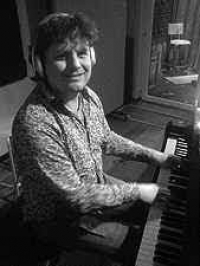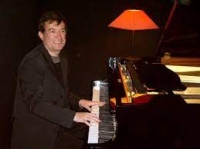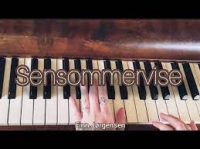Latest Sheet Music
Hanns Eisler

Hanns Eisler was an Austrian composer. He is best known for composing the national anthem of East Germany, for his long artistic association with Bertolt Brecht, and for the scores he wrote for films. The Hochschule für Musik "Hanns Eisler" is named after him.
David Popper

Popper was a prolific composer of music for his instrument, writing four concertos, a Requiem for three cellos and orchestra (1891) and a number of smaller pieces which are still played today, including the ever-popular cello solo piece Tarantella. His shorter showpieces were written to highlight the unique sound and style native to the cello extending the instrument's range to heights with pieces such as Spinnlied (Spinning Song), Elfentanz (Dance of the Elves), or the Ungarische Rhapsodie (Hungarian Rhapsody). He also wrote instructional pieces. Popper is also famous for his High School of Cello Playing (Op. 73), a book of cello études that is used almost universally by advanced cello students.
The Beatles

The Beatles were a pop and rock group from Liverpool, England formed in 1960. Primarily consisting of John Lennon (rhythm guitar, vocals), Paul McCartney (bass guitar, vocals), George Harrison (lead guitar, vocals) and Ringo Starr (drums, vocals) throughout their career, The Beatles are recognised for leading the mid-1960s musical "British Invasion" into the United States. Although their initial musical style was rooted in 1950s rock and roll and homegrown skiffle, the group explored genres ranging from Tin Pan Alley to psychedelic rock. Their clothes, styles, and statements made them trend-setters, while their growing social awareness saw their influence extend into the social and cultural revolutions of the 1960s. After the band broke up in 1970, all four members embarked upon solo careers.
The Beatles are one of the most commercially successful and critically acclaimed bands in the history of popular music, selling over a billion records internationally. In the United Kingdom, The Beatles released more than 40 different singles, albums, and EPs that reached number one, earning more number one albums (15) than any other group in UK chart history. This commercial success was repeated in many other countries; their record company, EMI, estimated that by 1985 they had sold over one billion records worldwide. According to the Recording Industry Association of America, The Beatles have sold more albums in the United States than any other band. In 2004, Rolling Stone magazine ranked The Beatles number one on its list of 100 Greatest Artists of All Time. According to that same magazine, The Beatles' innovative music and cultural impact helped define the 1960s, and their influence on pop culture is still evident today. In 2008, Billboard magazine released a list of top-selling Hot 100 artists to celebrate the chart's fiftieth anniversary; The Beatles reached #1 again.
The Beatles are one of the most commercially successful and critically acclaimed bands in the history of popular music, selling over a billion records internationally. In the United Kingdom, The Beatles released more than 40 different singles, albums, and EPs that reached number one, earning more number one albums (15) than any other group in UK chart history. This commercial success was repeated in many other countries; their record company, EMI, estimated that by 1985 they had sold over one billion records worldwide. According to the Recording Industry Association of America, The Beatles have sold more albums in the United States than any other band. In 2004, Rolling Stone magazine ranked The Beatles number one on its list of 100 Greatest Artists of All Time. According to that same magazine, The Beatles' innovative music and cultural impact helped define the 1960s, and their influence on pop culture is still evident today. In 2008, Billboard magazine released a list of top-selling Hot 100 artists to celebrate the chart's fiftieth anniversary; The Beatles reached #1 again.
Dizzy Gillespie

John Birks "Dizzy" Gillespie (pronounced /ɡɨˈlɛspi/; October 21, 1917 – January 6, 1993) was an American jazz trumpet player, bandleader, singer, and composer dubbed "the sound of surprise".
Together with Charlie Parker, he was a major figure in the development of bebop and modern jazz. He taught and influenced many other musicians, including trumpeters Miles Davis, Fats Navarro, Clifford Brown, Arturo Sandoval, Lee Morgan, Jon Faddis and Chuck Mangione.
Allmusic's Scott Yanow wrote that "Dizzy Gillespie's contributions to jazz were huge. One of the greatest jazz trumpeters of all time (some would say the best), Gillespie was such a complex player that his contemporaries ended up copying Miles Davis and Fats Navarro instead, and it was not until Jon Faddis's emergence in the 1970s that Dizzy's style was successfully recreated . . . Arguably Gillespie is remembered, by both critics and fans alike, as one of the greatest jazz trumpeters of all time.
In addition to featuring in the epochal moments in bebop, he was instrumental in founding Afro-Cuban jazz, the modern jazz version of what early-jazz pioneer Jelly Roll Morton referred to as the "Spanish Tinge". Gillespie was a trumpet virtuoso and gifted improviser, building on the virtuoso style of Roy Eldridge but adding layers of harmonic complexity previously unknown in jazz. Dizzy's beret and horn-rimmed spectacles, his scat singing, his bent horn, pouched cheeks and his light-hearted personality were essential in popularizing bebop.
Together with Charlie Parker, he was a major figure in the development of bebop and modern jazz. He taught and influenced many other musicians, including trumpeters Miles Davis, Fats Navarro, Clifford Brown, Arturo Sandoval, Lee Morgan, Jon Faddis and Chuck Mangione.
Allmusic's Scott Yanow wrote that "Dizzy Gillespie's contributions to jazz were huge. One of the greatest jazz trumpeters of all time (some would say the best), Gillespie was such a complex player that his contemporaries ended up copying Miles Davis and Fats Navarro instead, and it was not until Jon Faddis's emergence in the 1970s that Dizzy's style was successfully recreated . . . Arguably Gillespie is remembered, by both critics and fans alike, as one of the greatest jazz trumpeters of all time.
In addition to featuring in the epochal moments in bebop, he was instrumental in founding Afro-Cuban jazz, the modern jazz version of what early-jazz pioneer Jelly Roll Morton referred to as the "Spanish Tinge". Gillespie was a trumpet virtuoso and gifted improviser, building on the virtuoso style of Roy Eldridge but adding layers of harmonic complexity previously unknown in jazz. Dizzy's beret and horn-rimmed spectacles, his scat singing, his bent horn, pouched cheeks and his light-hearted personality were essential in popularizing bebop.
Chris Tomlin

Christopher Dwayne Tomlin (born May 4, 1972) is a Christian worship leader and songwriter from Grand Saline, Texas, United States. He is a staff member at Austin Stone Community Church and is signed to EMI's sixstepsrecords. Tomlin also leads worship at many Passion events. Some of his most well-known songs are "How Great Is Our God", "Indescribable", "Forever", "Famous One", "We Fall Down", "Holy Is the Lord" and "Made to Worship".
According to the Christian Copyright Licensing International, Tomlin is the most sung Christian artist in the United States. He was awarded Male Vocalist at the 2006 and 2007 Gospel Music Awards, and was named Artist of the Year in 2007 and 2008. Chris Tomlin will be releasing his 7th studio album "Hello Love" which is due September 2nd 2008.
According to the Christian Copyright Licensing International, Tomlin is the most sung Christian artist in the United States. He was awarded Male Vocalist at the 2006 and 2007 Gospel Music Awards, and was named Artist of the Year in 2007 and 2008. Chris Tomlin will be releasing his 7th studio album "Hello Love" which is due September 2nd 2008.
Jazz Standard

Autumn Leaves" is a popular song and jazz standard composed by Joseph Kosma with original lyrics by Jacques Prévert in French, and later by Johnny Mercer in English. An instrumental version by pianist Roger Williams was a #1 best-seller in the USA Billboard charts of 1955.
James Morrison

James Morrison (born 13 August 1984) is an English singer, songwriter, and guitarist born in Rugby. He now lives in Brighton.
In 2006, he debuted with the single "You Give Me Something" which became a huge hit around Europe, Australia, and Japan, charting at #5 in the UK and #1 in New Zealand His debut album, Undiscovered, went straight to number one in the UK and has sold more than three million copies worldwide.
Morrison performed at the Concert for Diana on July 1, 2007. He performed the songs "Wonderful World" and "You Give Me Something" in honour of Princess Diana.
In 2006, he debuted with the single "You Give Me Something" which became a huge hit around Europe, Australia, and Japan, charting at #5 in the UK and #1 in New Zealand His debut album, Undiscovered, went straight to number one in the UK and has sold more than three million copies worldwide.
Morrison performed at the Concert for Diana on July 1, 2007. He performed the songs "Wonderful World" and "You Give Me Something" in honour of Princess Diana.
Harvey Schmidt

Harvey Lester Schmidt (September 12, 1929 – February 28, 2018) was an American composer for musical theatre and illustrator. He was best known for composing the music for the longest running musical in history, The Fantasticks, which ran off-Broadway for 42 years, from 1960 to 2002.
Jonathan Prawira

Jonathan Prawira Musical artist Genre: Gospel Albums: Intimate Worship - Jauh Lebih Banyak, Songs Bersuka Dalam Tuhan Bersuka Dalam Tuhan · 2021 Natal Di Hatiku Narwastu · 2019 Sungguh Indah Kau Tuhan Sungguh Indah Kau Tuhan · 2020.
Music theory

Music theory is the study of the practices and possibilities of music. The Oxford Companion to Music describes three interrelated uses of the term "music theory"
Cat Stevens

Yusuf Islam, (born Steven Demetre Georgiou on 21 July 1948), best known by his former stage name Cat Stevens, is a British musician of Greek Cypriot and Swedish ancestry. He is a singer-songwriter, multi-instrumentalist, educator, philanthropist and prominent convert to Islam.
As Cat Stevens, he sold over 60 million albums around the world since the late 1960s. His albums Tea for the Tillerman and Teaser and the Firecat were both certified as Triple Platinum by the RIAA in the United States (three million sales each); his album Catch Bull at Four sold half a million copies in the first two weeks of release alone, and was Billboard's number-one LP for three consecutive weeks. His songwriting has also earned him two ASCAP songwriting awards for "The First Cut Is the Deepest," which has been a hit single for five different artists, and has been instrumental for others in establishing their musical careers.
Stevens converted to Islam at the height of his fame in 1977. The following year, he adopted his Muslim name Yusuf Islam, sold all his instruments and awards for charity, and left his music career to devote himself to educational and philanthropic causes in the Muslim community. He turned to his mother to help him decide the best candidate to wed, and thus, in an arranged marriage, took his vows with Fauzia Mubarak Ali, eventually producing five living children from the union.
He has been given several awards for his work in promoting peace in the world, including 2003's World Award, the 2004 Man for Peace award, and the 2007 Mediterranean Prize for Peace. In 2006, he returned to pop music, with his first album of new pop songs in 28 years, entitled An Other Cup.
He lives with his wife, children and grand-child in London. Yusuf Islam spends part of each year in Dubai.
As Cat Stevens, he sold over 60 million albums around the world since the late 1960s. His albums Tea for the Tillerman and Teaser and the Firecat were both certified as Triple Platinum by the RIAA in the United States (three million sales each); his album Catch Bull at Four sold half a million copies in the first two weeks of release alone, and was Billboard's number-one LP for three consecutive weeks. His songwriting has also earned him two ASCAP songwriting awards for "The First Cut Is the Deepest," which has been a hit single for five different artists, and has been instrumental for others in establishing their musical careers.
Stevens converted to Islam at the height of his fame in 1977. The following year, he adopted his Muslim name Yusuf Islam, sold all his instruments and awards for charity, and left his music career to devote himself to educational and philanthropic causes in the Muslim community. He turned to his mother to help him decide the best candidate to wed, and thus, in an arranged marriage, took his vows with Fauzia Mubarak Ali, eventually producing five living children from the union.
He has been given several awards for his work in promoting peace in the world, including 2003's World Award, the 2004 Man for Peace award, and the 2007 Mediterranean Prize for Peace. In 2006, he returned to pop music, with his first album of new pop songs in 28 years, entitled An Other Cup.
He lives with his wife, children and grand-child in London. Yusuf Islam spends part of each year in Dubai.
Moritz Moszkowski

Moritz (Maurice) Moszkowski (23 August 1854 – 4 March 1925) was a German composer, pianist, and teacher of Polish descent. Ignacy Paderewski said, "After Chopin, Moszkowski best understands how to write for the piano". Although little known today, Moszkowski was well-respected and popular during the late nineteenth century.
His music is brilliant, but has also been described as "devoid of the masculine and the feminine". He wrote over two hundred small-scale piano pieces, which brought him much popularity – notably his set of Spanish Dances, Op. 12, for piano duet (later arranged for solo piano, and for orchestra ). His early Serenade, Op. 15, was world-famous and appeared in many guises, including the song Liebe, kleine Nachtigall. Today he is probably best known for his fifteen Études de Virtuosité, Op. 72, which have been performed by virtuoso pianists such as Vladimir Horowitz and Marc-André Hamelin. Surprisingly, their first complete recording was not until 1970 (by Ilana Vered). Many of his small but brilliant piano pieces, such as Étincelles (Sparks), are used as encore performances at the end of classical concerts.
He also wrote larger scale works including the Piano Concerto in E major, Op. 59 (1898), the Violin Concerto in C major, Op. 30, three orchestral suites (Opp. 39, 47, 79), and a symphonic poem Jeanne d'Arc, Op. 19.
He wrote the opera Boabdil der letzte Maurenkönig, Op. 49, on the historical theme of the capture of Granada. It was premiered at the Berlin Court Opera on 21 April 1892, and appeared in Prague and New York the following year. It did not stay in the repertoire, but its ballet music was very popular for a number of years. He wrote a three-act ballet Laurin in 1896.
His music is brilliant, but has also been described as "devoid of the masculine and the feminine". He wrote over two hundred small-scale piano pieces, which brought him much popularity – notably his set of Spanish Dances, Op. 12, for piano duet (later arranged for solo piano, and for orchestra ). His early Serenade, Op. 15, was world-famous and appeared in many guises, including the song Liebe, kleine Nachtigall. Today he is probably best known for his fifteen Études de Virtuosité, Op. 72, which have been performed by virtuoso pianists such as Vladimir Horowitz and Marc-André Hamelin. Surprisingly, their first complete recording was not until 1970 (by Ilana Vered). Many of his small but brilliant piano pieces, such as Étincelles (Sparks), are used as encore performances at the end of classical concerts.
He also wrote larger scale works including the Piano Concerto in E major, Op. 59 (1898), the Violin Concerto in C major, Op. 30, three orchestral suites (Opp. 39, 47, 79), and a symphonic poem Jeanne d'Arc, Op. 19.
He wrote the opera Boabdil der letzte Maurenkönig, Op. 49, on the historical theme of the capture of Granada. It was premiered at the Berlin Court Opera on 21 April 1892, and appeared in Prague and New York the following year. It did not stay in the repertoire, but its ballet music was very popular for a number of years. He wrote a three-act ballet Laurin in 1896.
Creedence Clearwater Revival

Creedence Clearwater Revival, also referred to as Creedence and CCR, was an American rock band that recorded and performed from 1959 to 1972 under various names before settling on the Creedence Clearwater Revival name in 1967. The band initially consisted of lead vocalist, lead guitarist, and primary songwriter John Fogerty; his brother, rhythm guitarist Tom Fogerty; bassist Stu Cook; and drummer Doug Clifford. These members had played together since 1959, first as the Blue Velvets and later as the Golliwogs.
George Harrison
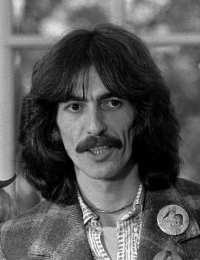
George Harrison, MBE (25 February 1943 – 29 November 2001) was an English rock guitarist, singer-songwriter and film producer who achieved international fame as lead guitarist in The Beatles. Often referred to as "the quiet Beatle", Harrison embraced Indian mysticism, and helped broaden the horizons of the other Beatles, as well as those of their Western audience. Following the band's breakup, he had a successful career as a solo artist and later as part of the Traveling Wilburys, and also as a film and record producer. Harrison is listed number 21 in Rolling Stone magazine's list of "The 100 Best Guitarists of All Time".
Although most of The Beatles' songs were written by Lennon and McCartney, Harrison generally wrote one song per side from the Help! album onwards. His later compositions with The Beatles include "Here Comes the Sun", "Something", "I Me Mine", "Taxman", "Within You Without You", "Think For Yourself", "If I Needed Someone", "The Inner Light", "Old Brown Shoe", "Piggies", "While My Guitar Gently Weeps" and "Savoy Truffle". By the time of the band's breakup, Harrison had accumulated a backlog of material, which he then released as the acclaimed and successful triple album All Things Must Pass in 1970, from which came two singles: a double A-side single, "My Sweet Lord" backed with "Isn't It a Pity", and "What Is Life". In addition to his solo work, Harrison co-wrote two hits for Ringo Starr, another ex-Beatle, as well as songs for the Traveling Wilburys—the supergroup he formed in 1988 with Bob Dylan, Tom Petty, Jeff Lynne and Roy Orbison.
Harrison embraced Indian culture and Hinduism in the mid 1960s, and helped expand Western awareness of sitar music and of the Hare Krishna movement. With Ravi Shankar he organised a major charity concert with the 1971 Concert for Bangladesh, and is the only Beatle to have published an autobiography, with I Me Mine in 1980.
Besides being a musician, he was also a record producer and co-founder of the production company HandMade Films. In his work as a film producer, he collaborated with people as diverse as Madonna and the members of Monty Python. He was married twice, to the model Pattie Boyd in 1966, and to the record company secretary Olivia Trinidad Arias in 1978, with whom he had one son, Dhani Harrison. He was a close friend of Eric Clapton. Harrison died of lung cancer in 2001.
Although most of The Beatles' songs were written by Lennon and McCartney, Harrison generally wrote one song per side from the Help! album onwards. His later compositions with The Beatles include "Here Comes the Sun", "Something", "I Me Mine", "Taxman", "Within You Without You", "Think For Yourself", "If I Needed Someone", "The Inner Light", "Old Brown Shoe", "Piggies", "While My Guitar Gently Weeps" and "Savoy Truffle". By the time of the band's breakup, Harrison had accumulated a backlog of material, which he then released as the acclaimed and successful triple album All Things Must Pass in 1970, from which came two singles: a double A-side single, "My Sweet Lord" backed with "Isn't It a Pity", and "What Is Life". In addition to his solo work, Harrison co-wrote two hits for Ringo Starr, another ex-Beatle, as well as songs for the Traveling Wilburys—the supergroup he formed in 1988 with Bob Dylan, Tom Petty, Jeff Lynne and Roy Orbison.
Harrison embraced Indian culture and Hinduism in the mid 1960s, and helped expand Western awareness of sitar music and of the Hare Krishna movement. With Ravi Shankar he organised a major charity concert with the 1971 Concert for Bangladesh, and is the only Beatle to have published an autobiography, with I Me Mine in 1980.
Besides being a musician, he was also a record producer and co-founder of the production company HandMade Films. In his work as a film producer, he collaborated with people as diverse as Madonna and the members of Monty Python. He was married twice, to the model Pattie Boyd in 1966, and to the record company secretary Olivia Trinidad Arias in 1978, with whom he had one son, Dhani Harrison. He was a close friend of Eric Clapton. Harrison died of lung cancer in 2001.
Natalie McMaster
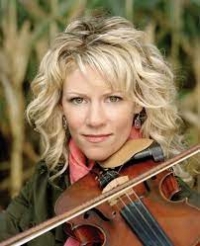
Natalie MacMaster CM ONS is a Canadian fiddler from Troy, Inverness County, Nova Scotia who plays Cape Breton fiddle music. MacMaster has toured with the Chieftains, Faith Hill, Carlos Santana, and Alison Krauss, and has recorded with Yo-Yo Ma.
Traditional

Los bravos
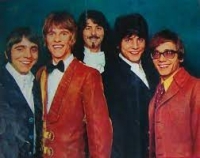
Los Bravos were a Spanish beat group, formed in 1965 and based in Madrid. They are most well known for their debut single "Black Is Black" which reached No. 2 in the United Kingdom in July 1966 and No. 4 in the United States, selling over a million records worldwide.
Cirque du Soleil

Cirque du Soleil (French for "Circus of the Sun") is an entertainment empire. Based in Montreal, Quebec, Canada located in Saint-Michel, and founded in Baie-Saint-Paul in 1984 by two former street performers, Guy Laliberté and Daniel Gauthier.
Initially named Les Échassiers, they toured Quebec in 1980 as a performing troupe and encountered financial hardship that was relieved by a government grant in 1983 as part of the 450th anniversary celebrations of Jacques Cartier's discovery of Canada.
Each show is a synthesis of circus styles from around the world, with its own central theme and storyline. They draw the audience into the performance through continuous live music, with performers change the props, and by having no curtains. After critical and financial successes (Los Angeles Arts Festival) and failures in the late 1980s, Nouvelle Expérience was created—with the direction of Franco Dragone—that not only made Cirque profitable by 1990, but allowed it to create new shows.
Cirque expanded rapidly through the 1990s and 2000s, going from one show with 73 employees in 1984 to 3,500~ employees from over 40 countries producing 15 shows over every continent, with an estimated annual revenue exceeding US$600 million.
Cirque's creations have been awarded numerous prizes and distinctions, including Bambi, Rose d'Or, three Gemini Awards and four Primetime Emmy Awards.
Initially named Les Échassiers, they toured Quebec in 1980 as a performing troupe and encountered financial hardship that was relieved by a government grant in 1983 as part of the 450th anniversary celebrations of Jacques Cartier's discovery of Canada.
Each show is a synthesis of circus styles from around the world, with its own central theme and storyline. They draw the audience into the performance through continuous live music, with performers change the props, and by having no curtains. After critical and financial successes (Los Angeles Arts Festival) and failures in the late 1980s, Nouvelle Expérience was created—with the direction of Franco Dragone—that not only made Cirque profitable by 1990, but allowed it to create new shows.
Cirque expanded rapidly through the 1990s and 2000s, going from one show with 73 employees in 1984 to 3,500~ employees from over 40 countries producing 15 shows over every continent, with an estimated annual revenue exceeding US$600 million.
Cirque's creations have been awarded numerous prizes and distinctions, including Bambi, Rose d'Or, three Gemini Awards and four Primetime Emmy Awards.
Luis de Narváez

Luis de Narváez (fl. 1526–49) was a Spanish composer and vihuelist. Highly regarded during his lifetime, Narváez is known today for Los seys libros del delphín, a collection of polyphonic music for the vihuela which includes the earliest known variation sets. He is also notable for being the earliest composer for vihuela to adapt the contemporary Italian style of lute music.
Michael W. Smith

Michael W. Smith (born October 7, 1957) is a Grammy Award-winning American singer and songwriter. He is one of the best-selling and most influential artists in Contemporary Christian Music, and he has achieved considerable success in the mainstream music industry as well. Smith is a three-time Grammy Award winner, and he has earned 34 Dove Awards. Over the course of his 24-year career, he has sold more than 13 million albums and he has recorded 29 number-one hit songs, fourteen gold albums, and five platinum albums. Mr. Smith is an American Music Award recipient and he was named one of People magazine's most beautiful people.
Astor Piazzolla

Ástor Pantaleón Piazzolla (March 11, 1921 – July 4, 1992) was an Argentine tango composer and bandoneón player. His oeuvre revolutionized the traditional tango into a new style termed nuevo tango, incorporating elements from jazz and classical music. An excellent bandoneonist, he regularly performed his own compositions with different ensembles.
Piazzolla's nuevo tango was distinct from the traditional tango in its incorporation of elements of jazz, its use of extended harmonies and dissonance, its use of counterpoint, and its ventures into extended compositional forms. As Argentine psychoanalyst Carlos Kuri has pointed out, Piazzolla's fusion of tango with this wide range of other recognizable Western musical elements was so successful that it produced a new individual style transcending these influences. It is precisely this success, and individuality, that makes it hard to pin down where particular influences reside in his compositions, but some aspects are clear. The use of the passacaglia technique of a circulating bass line and harmonic sequence, invented and much used in 17th and 18th century baroque music but also central to the idea of jazz "changes", predominates in most of Piazzolla's mature compositions. Another clear reference to the baroque is the often complex and virtuosic counterpoint that sometimes follows strict fugal behavior but more often simply allows each performer in the group to assert his voice. A further technique that emphasises this sense of democracy and freedom among the musicians is improvisation that is borrowed from jazz in concept, but in practice involves a different vocabulary of scales and rhythms that stay within the parameters of the established tango sound-world. Pablo Ziegler has been particularly responsible for developing this aspect of the style both within Piazzolla's groups and since the composer's death.
Piazzolla's nuevo tango was distinct from the traditional tango in its incorporation of elements of jazz, its use of extended harmonies and dissonance, its use of counterpoint, and its ventures into extended compositional forms. As Argentine psychoanalyst Carlos Kuri has pointed out, Piazzolla's fusion of tango with this wide range of other recognizable Western musical elements was so successful that it produced a new individual style transcending these influences. It is precisely this success, and individuality, that makes it hard to pin down where particular influences reside in his compositions, but some aspects are clear. The use of the passacaglia technique of a circulating bass line and harmonic sequence, invented and much used in 17th and 18th century baroque music but also central to the idea of jazz "changes", predominates in most of Piazzolla's mature compositions. Another clear reference to the baroque is the often complex and virtuosic counterpoint that sometimes follows strict fugal behavior but more often simply allows each performer in the group to assert his voice. A further technique that emphasises this sense of democracy and freedom among the musicians is improvisation that is borrowed from jazz in concept, but in practice involves a different vocabulary of scales and rhythms that stay within the parameters of the established tango sound-world. Pablo Ziegler has been particularly responsible for developing this aspect of the style both within Piazzolla's groups and since the composer's death.
Bud Powell

Earl Rudolph "Bud" Powell (September 27, 1924 – July 31, 1966) was an American jazz pianist. Though Thelonious Monk was a close friend and influence, his greatest piano influence was Art Tatum.
Along with Charlie Parker, Monk, and Dizzy Gillespie, Powell was a leading figure in the development of modern jazz, or bebop. His virtuosity led many to call him the Charlie Parker of the piano. Powell was also a composer, and many jazz critics credit his works and his playing as having "greatly extended the range of jazz harmony."
Along with Charlie Parker, Monk, and Dizzy Gillespie, Powell was a leading figure in the development of modern jazz, or bebop. His virtuosity led many to call him the Charlie Parker of the piano. Powell was also a composer, and many jazz critics credit his works and his playing as having "greatly extended the range of jazz harmony."
Saint Saens

Charles-Camille Saint-Saëns (9 October 1835 – 16 December 1921) was a French composer, organist, conductor, and pianist, known especially for The Carnival of the Animals, Danse Macabre, Samson and Delilah, Havanaise, Introduction and Rondo capriccioso, and his Symphony No. 3 (Organ Symphony).
Mike Stern

Mike Stern (born January 10, 1953) is an American jazz guitarist. A major player on the scene since his breakthrough days with Miles Davis' comeback band, circa 1981, Stern's sideman credits include work with such jazz icons as saxophonists George Coleman and Joe Henderson, bassist Jaco Pastorius, guitarists Jim Hall and Pat Martino, trumpeters Tom Harrell, Arturo Sandoval and Tiger Okoshi and saxophonists Michael Brecker, Bob Berg and David Sanborn as well as Steps Ahead and the Brecker Brothers Band.
Stern's role of bandleader-composer and recording artist has made his most significant and lasting contribution.
Stern's role of bandleader-composer and recording artist has made his most significant and lasting contribution.
Heitor Villa-Lobos

Heitor Villa-Lobos (March 5, 1887 – November 17, 1959) was a Brazilian composer, described as "the single most significant creative figure in 20th-century Brazilian art music". Villa-Lobos has become the best-known and most significant Latin American composer to date. He wrote numerous orchestral, chamber, instrumental and vocal works. His music was influenced by both Brazilian folk music and by stylistic elements from the European classical tradition, as exemplified by his Bachianas Brasileiras ("Brazilian Bachian-pieces").
His earliest pieces originated in guitar improvisations, for example Panqueca ("Pancake") of 1900. The concert series of 1915–21 included first performances of pieces demonstrating originality and virtuosic technique. Some of these pieces are early examples of elements of importance throughout his œuvre. His attachment to the Iberian Peninsula is demonstrated in Canção Ibéria of 1914 and in orchestral transcriptions of some of Enrique Granados' piano Goyescas (1918, now lost). Other themes that were to recur in his later work include the anguish and despair of the piece Desesperança— Sonata Phantastica e Capricciosa no. 1 (1915), a violin sonata including "histrionic and violently contrasting emotions", the birds of L'oiseau blessé d'une flèche (1913), the mother-child relationship (not usually a happy one in Villa-Lobos's music) in Les mères of 1914, and the flowers of Suíte floral for piano of 1916–18 which reappeared in Distribuição de flores for flute and guitar of 1937.
Reconciling European tradition and Brazilian influences was also an element that bore fruit more formally later. His earliest published work Pequena suíte for cello and piano of 1913 shows a love for the cello, but is not notably Brazilian, although it contains elements that were to resurface later. His three-movement String Quartet no. 1 (Suíte graciosa) of 1915 (expanded to six movements ca. 1947) is influenced by European opera, while Três danças características (africanas e indígenas) of 1914–16 for piano, later arranged for octet and subsequently orchestrated, is radically influenced by the tribal music of the Caripunas Indians of Mato Grosso.
With his tone poems Amazonas (1916, first performed in Paris in 1929) and Uirapurú (1916, first performed 1935) he created works dominated by indigenous Brazilian influences. The works use Brazilian folk tales and characters, imitations of the sounds of the jungle and its fauna, imitations of the sound of the nose-flute by the violinophone, and not least imitations of the uirapuru itself.
His earliest pieces originated in guitar improvisations, for example Panqueca ("Pancake") of 1900. The concert series of 1915–21 included first performances of pieces demonstrating originality and virtuosic technique. Some of these pieces are early examples of elements of importance throughout his œuvre. His attachment to the Iberian Peninsula is demonstrated in Canção Ibéria of 1914 and in orchestral transcriptions of some of Enrique Granados' piano Goyescas (1918, now lost). Other themes that were to recur in his later work include the anguish and despair of the piece Desesperança— Sonata Phantastica e Capricciosa no. 1 (1915), a violin sonata including "histrionic and violently contrasting emotions", the birds of L'oiseau blessé d'une flèche (1913), the mother-child relationship (not usually a happy one in Villa-Lobos's music) in Les mères of 1914, and the flowers of Suíte floral for piano of 1916–18 which reappeared in Distribuição de flores for flute and guitar of 1937.
Reconciling European tradition and Brazilian influences was also an element that bore fruit more formally later. His earliest published work Pequena suíte for cello and piano of 1913 shows a love for the cello, but is not notably Brazilian, although it contains elements that were to resurface later. His three-movement String Quartet no. 1 (Suíte graciosa) of 1915 (expanded to six movements ca. 1947) is influenced by European opera, while Três danças características (africanas e indígenas) of 1914–16 for piano, later arranged for octet and subsequently orchestrated, is radically influenced by the tribal music of the Caripunas Indians of Mato Grosso.
With his tone poems Amazonas (1916, first performed in Paris in 1929) and Uirapurú (1916, first performed 1935) he created works dominated by indigenous Brazilian influences. The works use Brazilian folk tales and characters, imitations of the sounds of the jungle and its fauna, imitations of the sound of the nose-flute by the violinophone, and not least imitations of the uirapuru itself.
William Penn Montgomery
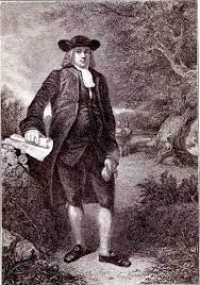
William Penn Montgomery Musical artist Genre: Classical Songs Prelude II for Piano With One...The Music of William Penn Montgomery · 2005 Prelude I for Piano With One...The Music of William Penn Montgomery · 2005 Gazing on the Earth
With One...The Music of William Penn Montgo.
With One...The Music of William Penn Montgo.
Michael Brecker

Michael Leonard Brecker (March 29, 1949 – January 13, 2007) was an American jazz saxophonist and composer. Acknowledged as "a quiet, gentle musician widely regarded as the most influential tenor saxophonist since John Coltrane," he has been awarded 15 Grammy Awards as both performer and composer and was inducted into Down Beat's Jazz Hall of Fame in 2007.
Diana Ross

Diana Ross (born Diana Ernestine Earle Ross, March 26, 1944) is an American singer and actress. During the 1960s, she helped shape the Motown sound as lead singer of The Supremes, before leaving the group for a solo career on January 14, 1970. Since the beginning of her career with The Supremes and as a solo artist, Ross has sold more than 100 million records.
During the 1970s and through the mid-1980s, Ross was among the most successful female artists, crossing over into film, television and Broadway. She received a Best Actress Academy Award nomination for her 1972 role as Billie Holiday in Lady Sings the Blues, for which she won a Golden Globe award for. She won awards at the American Music Awards, garnered twelve Grammy Award nominations, and won a Tony Award for her one-woman show, An Evening with Diana Ross, in 1977.
In 1976, Billboard magazine named her the "Female Entertainer of the Century." In 1993, the Guinness Book of World Records declared Diana Ross the most successful female music artist in history with a total of eighteen American number-one singles: twelve as lead singer of The Supremes and six as a soloist. Ross was the first female solo artist to score six number-ones. This feat puts her in a tie for fifth place among solo female artists with the most number-ones on the Hot 100. She is also one of the few recording artists to have two stars on the Hollywood Walk of Fame—one as a solo artist and the other as a member of The Supremes. In December 2007, she received a John F. Kennedy Center for the Performing Arts Honors Award.
Including her work with The Supremes, Ross has released 67 albums. Ross is a soprano.
During the 1970s and through the mid-1980s, Ross was among the most successful female artists, crossing over into film, television and Broadway. She received a Best Actress Academy Award nomination for her 1972 role as Billie Holiday in Lady Sings the Blues, for which she won a Golden Globe award for. She won awards at the American Music Awards, garnered twelve Grammy Award nominations, and won a Tony Award for her one-woman show, An Evening with Diana Ross, in 1977.
In 1976, Billboard magazine named her the "Female Entertainer of the Century." In 1993, the Guinness Book of World Records declared Diana Ross the most successful female music artist in history with a total of eighteen American number-one singles: twelve as lead singer of The Supremes and six as a soloist. Ross was the first female solo artist to score six number-ones. This feat puts her in a tie for fifth place among solo female artists with the most number-ones on the Hot 100. She is also one of the few recording artists to have two stars on the Hollywood Walk of Fame—one as a solo artist and the other as a member of The Supremes. In December 2007, she received a John F. Kennedy Center for the Performing Arts Honors Award.
Including her work with The Supremes, Ross has released 67 albums. Ross is a soprano.
BarlowGirl

BarlowGirl is a Christian rock/CCM band from Elgin, Illinois. The band is comprised of sisters Alyssa Barlow (lead vocals, bass, keyboard), Becca Barlow (backing vocals, guitar), and Lauren Barlow (lead vocals, drums). The band has won several awards in their genre; their song "Never Alone" was the longest running #1 song in 2004 on Radio and Records Christian Hit Radio (CHR) and Christian Rock charts, and was the "Song of the Year" on both charts. BarlowGirl became the best selling new Christian artist of 2004.
Their song "I Need You to Love Me" was released at the end of 2005. The single broke the record on Christian Radio & Retail Weekly's (CRW) Christian CHR chart by holding the #1 spot for 13 consecutive weeks. Bible Study that was recently released nationwide through LifeWay and Family Christian Stores. The three sisters were youth ambassadors for the National Day of Prayer in 2007.
Their song "I Need You to Love Me" was released at the end of 2005. The single broke the record on Christian Radio & Retail Weekly's (CRW) Christian CHR chart by holding the #1 spot for 13 consecutive weeks. Bible Study that was recently released nationwide through LifeWay and Family Christian Stores. The three sisters were youth ambassadors for the National Day of Prayer in 2007.
Mary J. Blige

Mary Jane Blige, also known as Mary J. Blige, is a famous American hip hop and R&B singer. She is known today as the "queen of hip hop" along with Missy Elliott. In addition to 8 Grammy awards, the artist was the only person to be shown to hip hop and soul awards in the 90s at the same time.
Luigi Boccherini

Ridolfo Luigi Boccherini (/ˌbɒkəˈriːni/, also US: /ˌboʊk-/, Italian: (About this soundlisten); 19 February 1743 – 28 May 1805) was an Italian, later Spanish, composer and cellist of the Classical era whose music retained a courtly and galante style even while he matured somewhat apart from the major European musical centers. He is best known for a minuet from his String Quintet in E, Op. 11, No. 5 (G 275), and the Cello Concerto in B flat major (G 482). The latter work was long known in the heavily altered version by German cellist and prolific arranger Friedrich Grützmacher, but has recently been restored to its original version.
James Blunt

James Blunt (born James Hillier Blount, February 22, 1974) is an English singer-songwriter whose debut album, Back to Bedlam, and single releases — especially the number one hit "You're Beautiful" — brought him to fame in 2005. His style is a mix of pop, rock and folk. Along with vocals, James Blunt performs a variety of instruments, including piano and guitar. He is signed to Linda Perry's independent American label Custard Records. Blunt won two BRIT Awards and two Ivor Novello Awards, and was nominated for five Grammy Awards in 2006. Blunt subsequently released his second album, All The Lost Souls, in 2007; this album was certified gold within its first week of release. The first single from his second album, "1973", was Blunt's first Global Number 1 in October 2007, beating "You're Beautiful" which peaked at Number 2 in the United World Chart.
Prior to embarking on a career in music, Blunt was an officer in the Life Guards, a reconnaissance regiment of the British Army, and served under NATO in Kosovo during the conflict in 1999. While posted to Kosovo, Blunt was introduced to the work of Médecins sans Frontières (MSF) (Doctors Without Borders), a humanitarian aid group best known for its emergency medical care in conflict-torn regions. Since then, Blunt has supported MSF by holding meet-and-greet auctions at many of his concerts.
Blunt's primary residence is now on the Spanish island of Ibiza, where he wrote many of the songs on his second album.
Prior to embarking on a career in music, Blunt was an officer in the Life Guards, a reconnaissance regiment of the British Army, and served under NATO in Kosovo during the conflict in 1999. While posted to Kosovo, Blunt was introduced to the work of Médecins sans Frontières (MSF) (Doctors Without Borders), a humanitarian aid group best known for its emergency medical care in conflict-torn regions. Since then, Blunt has supported MSF by holding meet-and-greet auctions at many of his concerts.
Blunt's primary residence is now on the Spanish island of Ibiza, where he wrote many of the songs on his second album.
Arnold Schönberg
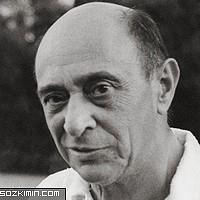
Arnold Franz Walter Schönberg is an Austrian-Hungarian composer who has made great contributions to 20th century music. Became a US citizen after 1941
Philipp Moehrke
Philipp Moehrke studierte Klavier und Arrangement am Berklee College of Music (Boston/USA). Seine stilistische Vielfalt und sein pianistisches Können führten ihn zu vielen Konzerten und Engagements in Deutschland und anderen europäischen Ländern. Seine CD-Aufnahmen zeugen von seinem Können als Pianist, Komponist, Arrangeur und Produzent. Von 1991-2013 Dozent an den Jazz & Rock Schulen Freiburg und maßgebliche Mitwirkung an der Konzeption des Berufsschulstudiengangs. Workshop Leitung bei Fortbildungsveranstaltungen in Deutschland, Frankreich, der Schweiz und in Österreich. Autor von zehn Büchern zum Thema "Jazz & Pop Piano".
Coeur de pirate

Béatrice Martin (born September 22, 1989) is a Canadian pop singer-songwriter from Quebec, who performs under the stage name Cœur de pirate.
She started playing the piano when she was only three years old, and later played as a keyboardist in the post hardcore band December Strikes First when she was 15 years old. After a brief stint as keyboardist for Bonjour Brumaire, she released her debut album Cœur de pirate in 2008 on Grosse Boîte. The album was subsequently nominated for Francophone Album of the Year at the 2009 Juno Awards.
The single "Comme des enfants" reached #1 on CBC Radio 3's R3-30 charts the week of February 19, 2009; it was only the second French language song, following Les Breastfeeders' "Pas sans saveur" in 2006, ever to top that chart.
She attracted wider media attention in February 2009 when Francis Vachon, a photographer from Quebec City, used her song "Ensemble" as the soundtrack to a popular YouTube video depicting his baby son playing with toys, leading to coverage on Good Morning America and a favourable review from blogger Perez Hilton.
In March 2009, Martin started an English side-project called Pearls.
In June 2009, she appeared on a special appearance of CBC Radio's Q radio show with Jian Ghomeshi. She performed her single "Ensemble" and a new song, titled "Place de la république".
She started playing the piano when she was only three years old, and later played as a keyboardist in the post hardcore band December Strikes First when she was 15 years old. After a brief stint as keyboardist for Bonjour Brumaire, she released her debut album Cœur de pirate in 2008 on Grosse Boîte. The album was subsequently nominated for Francophone Album of the Year at the 2009 Juno Awards.
The single "Comme des enfants" reached #1 on CBC Radio 3's R3-30 charts the week of February 19, 2009; it was only the second French language song, following Les Breastfeeders' "Pas sans saveur" in 2006, ever to top that chart.
She attracted wider media attention in February 2009 when Francis Vachon, a photographer from Quebec City, used her song "Ensemble" as the soundtrack to a popular YouTube video depicting his baby son playing with toys, leading to coverage on Good Morning America and a favourable review from blogger Perez Hilton.
In March 2009, Martin started an English side-project called Pearls.
In June 2009, she appeared on a special appearance of CBC Radio's Q radio show with Jian Ghomeshi. She performed her single "Ensemble" and a new song, titled "Place de la république".
Lars Winnerbäck

Lars Mattias Winnerbäck (born 19 October 1975 in Stockholm) is a Swedish singer and songwriter. He was born in Stockholm but spent his childhood in Vidingsjö, Linköping, where he attended Katedralskolan. He moved back to Stockholm in 1996, the same year he released his first album, Dans med svåra steg. He is now one of Sweden's most popular artists.The influence of songwriters like Carl Michael Bellman, Evert Taube, Bob Dylan, Ulf Lundell and Cornelis Vreeswijk shines through in Winnerbäck's exclusively Swedish lyrics, which deal with shallowness, prejudice in society, as well as romance, relationships and anxiety. Several songs depict the difference between living in small town Linköping and the capital Stockholm.
Gregor Peters-Rey
Gregor Peters-Rey (1966- ) was born in 1966 and lives near Ulm, Germany. He began composing at the age of 17 during his training to become a church musician. After this training he studied piano in Augsburg and organ in Munich. For several years he was active in different organ positions in the Ulm area and led various choirs.
Zdeněk Borovec
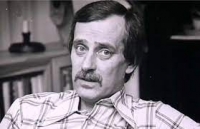
Zdeněk Borovec Lyricist Born: January 7, 1932, Prague, Czechia Died: February 18, 2001, Prague, Czechia
Children: Lucie Borovcová Grandchildren: Anna Stropnická, Matěj Stropnický Movies: Cleopatra, Nerozumím, Na dobré stopě, Silvery Wind, The Stone Table Inn, The Great Movie Robbery Songs Ano A kapky kapou Jezebel
Children: Lucie Borovcová Grandchildren: Anna Stropnická, Matěj Stropnický Movies: Cleopatra, Nerozumím, Na dobré stopě, Silvery Wind, The Stone Table Inn, The Great Movie Robbery Songs Ano A kapky kapou Jezebel
The Gap Band
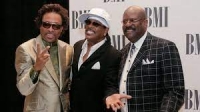
The Gap Band was an American R&B and funk band that rose to fame during the 1970s and 1980s. The band consisted of three brothers: Charlie, Ronnie, and Robert Wilson, along with other members; it was named after streets in the historic Greenwood neighborhood in the brothers' hometown of Tulsa, Oklahoma.
U2

U2 are a rock band from Dublin, Ireland. The band consists of Bono (vocals and guitar), The Edge (guitar, keyboards, and vocals), Adam Clayton (bass guitar) and Larry Mullen, Jr. (drums and percussion).
The band formed in 1976 when the members were teenagers with limited musical proficiency. By the mid-1980s, however, the band had become a top international act, noted for their anthemic sound, Bono's impassioned vocals, and The Edge's textural guitar playing. Their success as a live act was greater than their success at selling records until their 1987 album The Joshua Tree increased the band's stature "from heroes to superstars," according to Rolling Stone. U2 responded to the dance and alternative rock revolutions, and their own sense of musical stagnation by reinventing themselves with their 1991 album Achtung Baby and the accompanying Zoo TV Tour. Similar experimentation continued for the rest of the 1990s. Since 2000, U2 have pursued a more traditional sound that retains the influence of their previous musical explorations.
U2 have sold more than 140 million albums worldwide and have won 22 Grammy Awards, more than any other band. In 2005, the band were inducted into the Rock and Roll Hall of Fame in their first year of eligibility. Rolling Stone magazine listed U2 at #22 in its list of the 100 greatest artists of all time. Throughout their career, as a band and as individuals, they have campaigned for human rights and social justice causes, including Amnesty International, the ONE Campaign, and Bono's DATA (Debt, AIDS, Trade in Africa) campaign.
The band formed in 1976 when the members were teenagers with limited musical proficiency. By the mid-1980s, however, the band had become a top international act, noted for their anthemic sound, Bono's impassioned vocals, and The Edge's textural guitar playing. Their success as a live act was greater than their success at selling records until their 1987 album The Joshua Tree increased the band's stature "from heroes to superstars," according to Rolling Stone. U2 responded to the dance and alternative rock revolutions, and their own sense of musical stagnation by reinventing themselves with their 1991 album Achtung Baby and the accompanying Zoo TV Tour. Similar experimentation continued for the rest of the 1990s. Since 2000, U2 have pursued a more traditional sound that retains the influence of their previous musical explorations.
U2 have sold more than 140 million albums worldwide and have won 22 Grammy Awards, more than any other band. In 2005, the band were inducted into the Rock and Roll Hall of Fame in their first year of eligibility. Rolling Stone magazine listed U2 at #22 in its list of the 100 greatest artists of all time. Throughout their career, as a band and as individuals, they have campaigned for human rights and social justice causes, including Amnesty International, the ONE Campaign, and Bono's DATA (Debt, AIDS, Trade in Africa) campaign.
Casting Crowns

Casting Crowns is a Grammy award and Dove Award winning Christian band that employs a soft rock music style. The band was created in 1999 by youth pastor Mark Hall at First Baptist Church in Downtown Daytona Beach, Florida as part of a Youth Group. He also serves as a lead vocalist. Later they moved to McDonough, Georgia and more members joined creating the band now known as Casting Crowns. Some members of the band currently work as ministers for Eagles Landing First Baptist Church in McDonough, Georgia.
Discovered by, among others, contemporary Christian music legend Steven Curtis Chapman, Casting Crowns received a recording contract and vaulted to popularity in 2003 with their self-titled debut album Casting Crowns. The album quickly made them one of the fastest selling debut artists in Christian music history. Lifesong followed in 2005, debuting at #9 on the Billboard 200 Albums Chart. Both albums have been certified Platinum. The band's third album The Altar and the Door debuted at #2 on the Billboard 200 Albums Chart and #1 on the Hot Christian Albums chart upon its release in August 2007. Ten weeks after it came out it was certified Gold.
Casting Crowns has enjoyed tremendous success in the United States. They have released nine singles to date, seven of which have become consecutive number one hits on various Christian music charts. "Voice of Truth" spent a record-breaking fourteen consecutive weeks at #1 beginning in 2003. "Lifesong" spent nine weeks in the top spot, with "Praise You in This Storm" remaining at #1 for seven weeks. Casting Crowns broke their own record in 2007 when the single "East to West" from The Altar and the Door hit sixteen consecutive weeks at #1. The song ended up enjoying the top spot for a total of nineteen weeks, now their most successful single to date.
Discovered by, among others, contemporary Christian music legend Steven Curtis Chapman, Casting Crowns received a recording contract and vaulted to popularity in 2003 with their self-titled debut album Casting Crowns. The album quickly made them one of the fastest selling debut artists in Christian music history. Lifesong followed in 2005, debuting at #9 on the Billboard 200 Albums Chart. Both albums have been certified Platinum. The band's third album The Altar and the Door debuted at #2 on the Billboard 200 Albums Chart and #1 on the Hot Christian Albums chart upon its release in August 2007. Ten weeks after it came out it was certified Gold.
Casting Crowns has enjoyed tremendous success in the United States. They have released nine singles to date, seven of which have become consecutive number one hits on various Christian music charts. "Voice of Truth" spent a record-breaking fourteen consecutive weeks at #1 beginning in 2003. "Lifesong" spent nine weeks in the top spot, with "Praise You in This Storm" remaining at #1 for seven weeks. Casting Crowns broke their own record in 2007 when the single "East to West" from The Altar and the Door hit sixteen consecutive weeks at #1. The song ended up enjoying the top spot for a total of nineteen weeks, now their most successful single to date.
James Ingram

James Edward Ingram (February 16, 1952 – January 29, 2019) was an American singer, songwriter, record producer, and instrumentalist. He was a two-time Grammy Award-winner and a two-time Academy Award nominee for Best Original Song. After beginning his career in 1973, Ingram charted eight Top 40 hits on the U.S. Billboard Hot 100 chart from the early 1980s until the early 1990s, as well as thirteen top 40 hits on the Hot R&B/Hip-Hop Songs chart. In addition, he charted 20 hits on the Adult Contemporary chart (including two number-ones).
Beatles

The Beatles were an English rock band formed in Liverpool in 1960. Their best-known lineup, consisting of John Lennon, Paul McCartney, George Harrison, and Ringo Starr, became the greatest and most influential act of the rock era, introducing more innovations into popular music than any other rock band of the 20th century. Rooted in skiffle and 1950s rock and roll, the Beatles later utilized several genres, ranging from pop ballads to psychedelic rock, often incorporating classical elements in innovative ways. In the early 1960s, their enormous popularity first emerged as "Beatlemania", but as their songwriting grew in sophistication, they came to be perceived by many fans and cultural observers as an embodiment of the ideals shared by the era's sociocultural revolutions.
The band built their reputation playing clubs in Liverpool and Hamburg over a three-year period from 1960. Manager Brian Epstein moulded them into a professional act and producer George Martin enhanced their musical potential. They gained popularity in the United Kingdom after their first modest hit, "Love Me Do", in late 1962. They acquired the nickname the "Fab Four" as Beatlemania grew in Britain over the following year, and by early 1964 they had become international stars, leading the "British Invasion" of the United States pop market. From 1965 on, the Beatles produced what many critics consider their finest material, including the innovative and widely influential albums Rubber Soul (1965), Revolver (1966), Sgt Pepper's Lonely Hearts Club Band (1967), The Beatles (1968), and Abbey Road (1969). After their break-up in 1970, they each enjoyed successful musical careers. Lennon was shot and killed in December 1980, and Harrison died of lung cancer in November 2001. McCartney and Starr remain musically active.
The band built their reputation playing clubs in Liverpool and Hamburg over a three-year period from 1960. Manager Brian Epstein moulded them into a professional act and producer George Martin enhanced their musical potential. They gained popularity in the United Kingdom after their first modest hit, "Love Me Do", in late 1962. They acquired the nickname the "Fab Four" as Beatlemania grew in Britain over the following year, and by early 1964 they had become international stars, leading the "British Invasion" of the United States pop market. From 1965 on, the Beatles produced what many critics consider their finest material, including the innovative and widely influential albums Rubber Soul (1965), Revolver (1966), Sgt Pepper's Lonely Hearts Club Band (1967), The Beatles (1968), and Abbey Road (1969). After their break-up in 1970, they each enjoyed successful musical careers. Lennon was shot and killed in December 1980, and Harrison died of lung cancer in November 2001. McCartney and Starr remain musically active.
Beth Hart

Beth Hart is an American singer, songwriter and musician from Los Angeles, California. She rose to fame with the release of her 1999 single "LA Song" from her second album Screamin' for My Supper.
Ludwig van Beethoven

Ludwig van Beethoven (/ˈlʊdvɪɡ væn ˈbeɪt(h)oʊvən/ (About this soundlisten); German: (About this soundlisten); baptised 17 December 1770 – 26 March 1827) was a German composer and pianist. A crucial figure in the transition between the classical and romantic eras in classical music, he remains one of the most recognized and influential musicians of this period, and is considered to be one of the greatest composers of all time.
Beethoven was born in Bonn, the capital of the Electorate of Cologne, and part of the Holy Roman Empire. He displayed his musical talents at an early age and was vigorously taught by his father Johann van Beethoven, and was later taught by composer and conductor Christian Gottlob Neefe. At age 21, he moved to Vienna and studied composition with Joseph Haydn. Beethoven then gained a reputation as a virtuoso pianist, and was soon courted by Prince Lichnowsky for compositions, which resulted in Opus 1 in 1795.
Beethoven was born in Bonn, the capital of the Electorate of Cologne, and part of the Holy Roman Empire. He displayed his musical talents at an early age and was vigorously taught by his father Johann van Beethoven, and was later taught by composer and conductor Christian Gottlob Neefe. At age 21, he moved to Vienna and studied composition with Joseph Haydn. Beethoven then gained a reputation as a virtuoso pianist, and was soon courted by Prince Lichnowsky for compositions, which resulted in Opus 1 in 1795.
Marcus Mumford
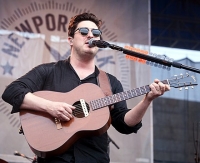
Marcus Oliver Johnstone Mumford (born 31 January 1987) is a British singer, songwriter, musician, and record producer. He is best known as the lead singer of the folk band Mumford & Sons. He also plays a number of instruments with the group, including guitar, drums and mandolin. He is married to English actress Carey Mulligan.
 Sheet Music Port is a site for those who wants to access popular sheet music easily,
letting them download the sheet music for free for trial purposes.
It's completely free to download and try the listed sheet music, but you have to delete the files after 24 hours of trial.
Don't forget, if you like the piece of music you have just learned playing,
treat the artist with respect, and go buy the original sheet music.
Sheet Music Port is a site for those who wants to access popular sheet music easily,
letting them download the sheet music for free for trial purposes.
It's completely free to download and try the listed sheet music, but you have to delete the files after 24 hours of trial.
Don't forget, if you like the piece of music you have just learned playing,
treat the artist with respect, and go buy the original sheet music.
